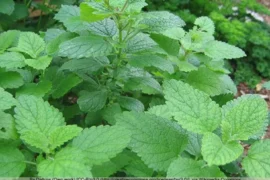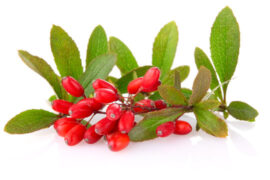Thyme(Thymus vulgaris) has been used for a long time as a culinary, ornamental, and as a medicinal herb by various cultures around the world. It offers numerous health benefits which include but are not limited to immune support, digestive system support, and enhanced respiratory health. What exactly makes thyme a valuable herb?
What is Thyme?
Thyme is a small, woody herb that originates from various regions in Europe, Asia and the Mediterranean. It belongs to the mint family, Lamiaciae family. It is believed that the ancient Egyptians used thyme for embalming. The ancient Greeks incorporated it into their baths and burned it as an incense in their temples. The leaves contain essential oils that give thyme its scent and medicinal properties. These oils can be obtained from the aerial parts of the plant through a process called steam distillation.
While thymol is the primary active compound present in thyme oil, other active compounds like camphor, borneol, cineol, linalool have been discovered in the herb. These compounds not only add flavor to food and but also serve as herbal remedies for various health issues.

Health Benefits of Thyme
Thyme offers impressive health advantages. Here are some ways to use thyme as a natural remedy:
-
Combats Infections
- Thymol, a biocide present in thyme possesses antibacteria and antifungal properties. Thymol and carvacrol both present in thyme can inhibit the growth of harmful microorganisms that can cause diseases thereby curbing the spread of infections. There are many other natural sources of thymol such as Monarda fistulosa and Monarda didyma, Mosla chinensis and among others.
-
Boosts Immune System
- Thyme is rich in vitamin C, vitamin A, and antioxidants, which help boost the immune system. Flavonoids present in thyme (rutin, quercetin, apigenin, naringenin), along with other phenolic compounds, improves the body’s capacity to fight off viruses, bacteria, and various pathogens which can cause diseases.
-
Supports Respiratory Health
- Thyme is known for its ability to support the respiratory system. It can alleviate symptoms associated with coughs, bronchitis, and asthma by thinning mucus and facilitating better airflow. Studies show that oral treatment with a combination of thyme and ivy for 11 days could help treat acute bronchitis.
-
Aids Digestion
- Bile, a fluid made by the liver helps in the digestion of lipids. Indigestion symptoms such as nausea, bloating, pain, and other symptoms may occur when the body struggles to digest food properly. Thyme may stimulate bile production, thereby aiding digestion.
- A study conducted in 1987 in Saudi Arabia suggested that thyme extract could be taken orally to address indigestion and support gut health.
-
Supports Cardiovascular Health
- Thyme may help support cardiovascular health by lowering blood pressure and cholesterol levels, both key factors in preventing heart disease. While additional research might be needed fully understand how thyme (Thymus vulgaris) may be useful for supporting heart health, there are reports of other thyme species being used to treat heart diseases.
-
Alleviate Inflammation
- Arthritis, a chronic inflammation of one or more joints causes pain and discomfort. Thymol, a compound present in thyme has anti-inflammatory and antioxidant properties which can help reduce inflammation and provide relief for the affected joints.
- Over the centuries, various cultures around the world have used thyme traditionally for treating arthritis.
How to Use Thyme
Thyme can be used in numerous ways for both culinary and medicinal purposes. Here are some suggestions:
- Fresh or dried leaves: Fresh or dried thyme can be used for cooking to enhance the flavor of meats, soups, and stews.
- Thyme tea: Dip fresh or dried thyme leaves in hot water to make tea. Thyme tea can provide relief for respiratory disorders.
- Thyme oil: Thyme oil appears pale yellow is typically used as a food preservative, in aromatherapy, for treating minor infections and as a potential treatment for breast cancer.
- Thyme capsules: Thyme is available in capsule form for anyone who prefers the concentrated form, which can easily be found online.
-
Side Effects and Precautions
While thyme is generally safe for most people, there are a few considerations to bear in mind:
- Allergic Responses: Some individuals may have an allergy to thyme or other herbs from the mint family. If you notice any symptoms of an allergic reaction, like skin irritation or swelling, stop using it.
- Pregnancy and Nursing: Women who are pregnant or breastfeeding should should seek advise from a healthcare professional before using thyme or its oil.
- Medication Interactions: Thyme may interact with certain prescriptions, particularly blood thinners. Always consult a medical personnel before using any herbal remedy.
Conclusion
Is thyme suitable for you? Thyme is a great herb with many health benefits. It helps combat infections, supports cardiovascular health, supports respiratory health and provides a vast range of other health benefits. Whether you use it to enhance your meals or as a natural treatment for common health issues, thyme is a valuable addition to have readily available.
Thyme is a good alternative for those who want to improve their health by using natural health remedies. Have you utilized thyme for its health benefits? What positive effects have you noticed? Share your thoughts in the comments.
Frequently asked Questions About Thyme
- What distinguishes thyme from other herbs? Although thyme possesses similar properties with herbs like oregano and marjoram, it has unique characteristics. Thyme contains thymol, a compound that defines its scent and has significant antimicrobial and anti-inflammatory properties. Active compounds, flavonoids and phenolic compounds present in thyme are often more potent than those of many other common herbs.
- In contrast, while oregano is favored for its intense flavor in cooking, thyme provides a milder taste and offers many health benefits through its essential oils.
- How should thyme be stored? To preserve its flavor and effectiveness, thyme needs proper storage. Dried thyme can be kept in the refrigerator, wrapped in a moist paper towel or placed in an airtight container. Dried thyme should be stored in an airtight container in a cool, dark space, like a pantry or cupboard. If stored properly, dried thyme can maintain its flavor for up to one year.
- How do I grow thyme at home? Growing thyme is quite simple. It should be sown in loamy soil and needs plenty of sunlight. Thyme can be cultivated from seeds, young plants, or cuttings. Once established, thyme requires minimal watering and can withstand dry conditions.
- What is difference between fresh thyme and dried thyme? Fresh thyme tends to have a gentler flavor and is frequently utilized in cooking when added during the cooking process. Dried thyme has a stronger flavor and is usually employed in recipes with longer cooking durations, such as stews or sauces that simmer for a while. When replacing fresh thyme in recipe, use about one-third of the quantity specified.





